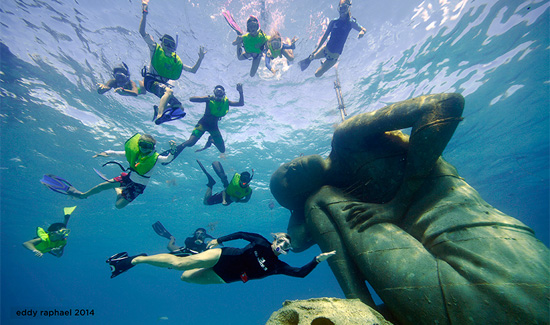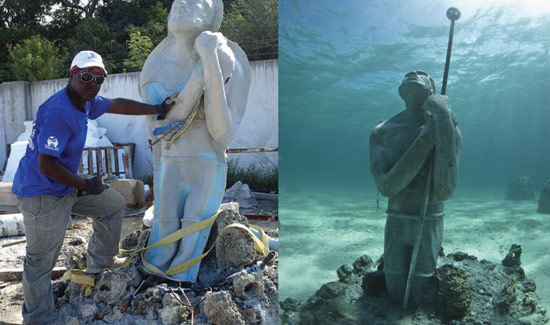After two weeks of exploring the coral reefs on the Cay Sal Bank, chief scientist of the Global Reef Expedition, Dr. Andrew Bruckner, provided an overview of the group’s work and resulting observations to members of the public during a meeting held yesterday at the Rand Nature Centre.
The Bahamas has been chosen as the launch site for a five-year study of shallow coral reef environments around the world, and there will be six months of research in various parts of The Bahamas.
Besides the Cay Sal bank, which the team will continue working on for another 10 days, there will be studies done of the Hogsty Reef and other areas off the Inagua Islands in August, and areas in Andros in October.
There is an ongoing coral reef crisis happening presently, Bruckner noted, where reefs around the world are declining rapidly.
“The most recent estimates suggest that if we don’t take actions now to reduce human impact, we may lose most of our reefs in the next 30-50 years,” he said.
Many of the most serious threats that are impacting the reefs have already been identified, he said, and the steps that can be taken to address those threats are also known. Now, there just needs to be more research conducted in order to figure out what specific things need to be done, he added.
“And so one of the main objectives of our research as we go around the world is to look at reefs, focusing on areas that are in really remote locations where there are no direct human impact and seeing how those reefs function – how do the fish fit in with the corals? What eats what? What things control the health of the corals?” he explained.



